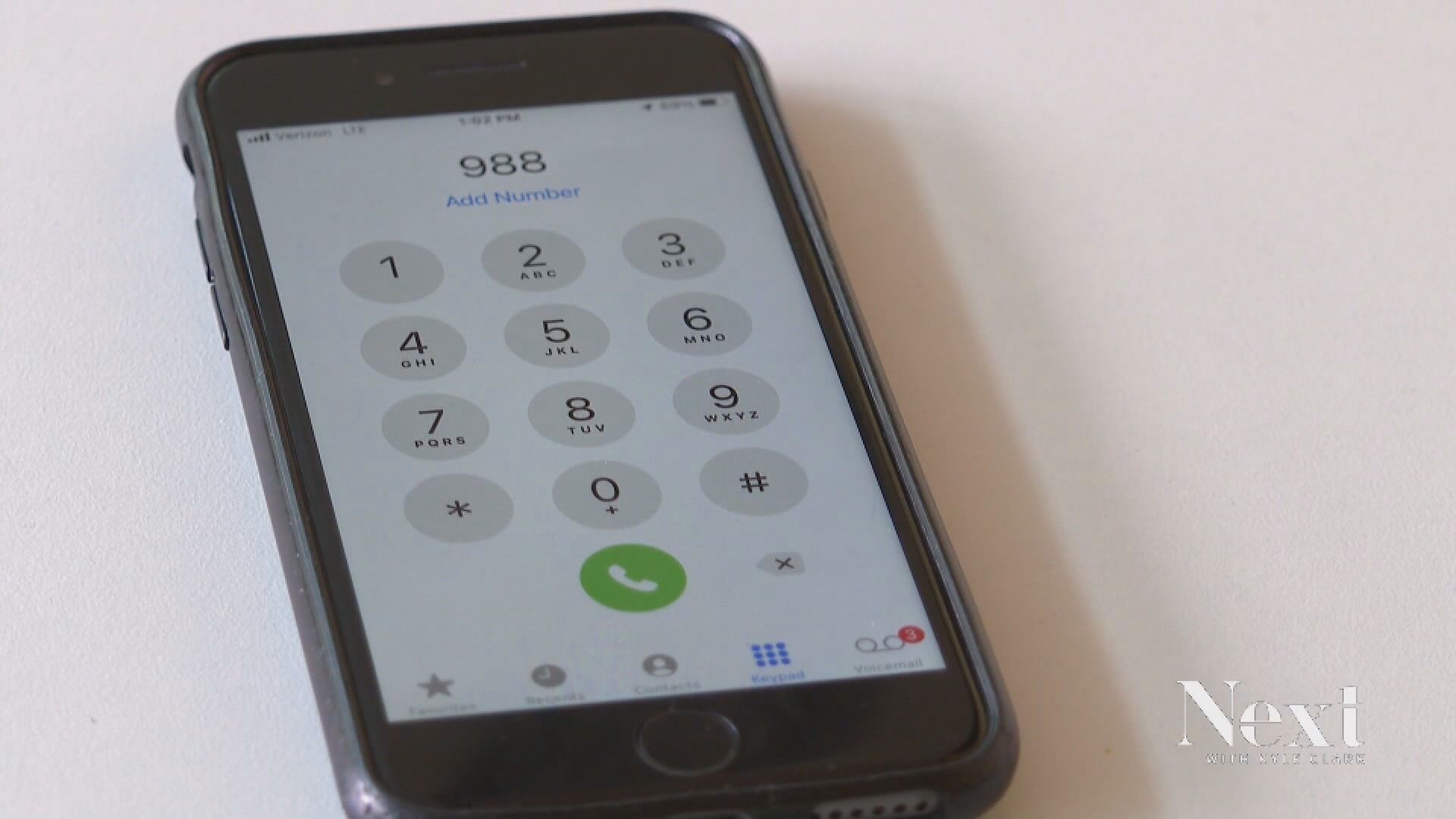DENVER — It's not uncommon nowadays to have a cell phone number and area code that aren't associated with the state you currently live in.
That's bringing up some new questions with the establishment of 988, a new help line to help people during a mental health crisis.
We talked to the CEO of Rocky Mountain Crisis Partners, as well as a crisis specialist with the group that takes calls via 988.
The system
988 is now the National Suicide Hotline, which got its start in 2004. As of July 16, 2022, people can now simply dial 988 on their phones to get emergency mental health help like they would dial 911 in another kind of emergency.
But unlike 911, your current location doesn't necessarily dictate who answers the call.
"They didn't want to hold up accessibility process until the geolocation decision was made. It was a decision about the best starting place at that time to be followed by geo-access," said Rocky Mountain Crisis Partners CEO Bev Marquez.
"Us as centers have been saying, we are not in a position where geography matters a large percentage of the time. Lets get access with more folks calling. We already know how to get the back to the state they reside in. Let's work on that simultaneously."
Erik Jacobsen, a crisis specialist, said because the lifeline was already routing numbers via area code, he has helped people who are out of state while he is living and working in Colorado.
"It's a policy and procedure that's not foreign to us," said Jacobsen. "In that moment we meet the caller where they are at. We are honest and up front in the early part of the call when we are trying to gathering some demographic information, where are you calling from. They say Chicago, Massachusetts, etc. We try to provide emotional support. We also want to be clear I might not have expertise of on the ground resources in another state. If you were looking to connect with someone on the ground I'm probably not the best person to talk. However, I would love to try to connect you to a crisis call center in your state, which we can do."
But if that person needs to be connected with longer term help, it's harder because the people working in Colorado don't have those connections and resources readily available in other states.
That scenario is expected to happen more as more people use 988.
Possible solutions
Many people are asking about geolocation for 988. It's the kind of technology that 911 uses, including utilizing cell phone towers and GPS data to connect people to local help.
"Funding wasn't available for this capacity. But also, I don't think it was widely understood at the level that it is now," said Marquez.
"Also, there's an audience that has some concerns about what that means if your geography can be located. It's just been a prioritization kind of issue."
While it has benefits, like connecting to local resources, emergency help and call centers predicting call volume, Jacobsen said some people are worried about privacy.
"A somewhat substantial chunk of our callers want to remain anonymous," he said.
"It's a misconception 911 and 988 are one and the same. They are actually quite different. When someone calls 911, often the intention is to induce an emergency response -- police, ambulance or fire. The intention have someone to come to you. 988, we are trying to implement the last restrictive intervention. The goal of 988 is to provide a safe space where people can share their concerns," said Jacobsen.
Whose decision is it?
It's up to the Federal Communications Commission to decide whether to use geolocation or not.
In an e-mail, a spokesperson wrote:
Call routing and geolocation are related location issues but involve different technical, legal, privacy, and cost considerations.
Routing improvements could help callers in need connect to their regional call centers.
We are exploring ways to improve the routing of 988 calls to the appropriate call center while also ensuring that 988 continues to not share geolocation information that might be misused.
SUGGESTED VIDEOS: Full Episodes of Next with Kyle Clark

